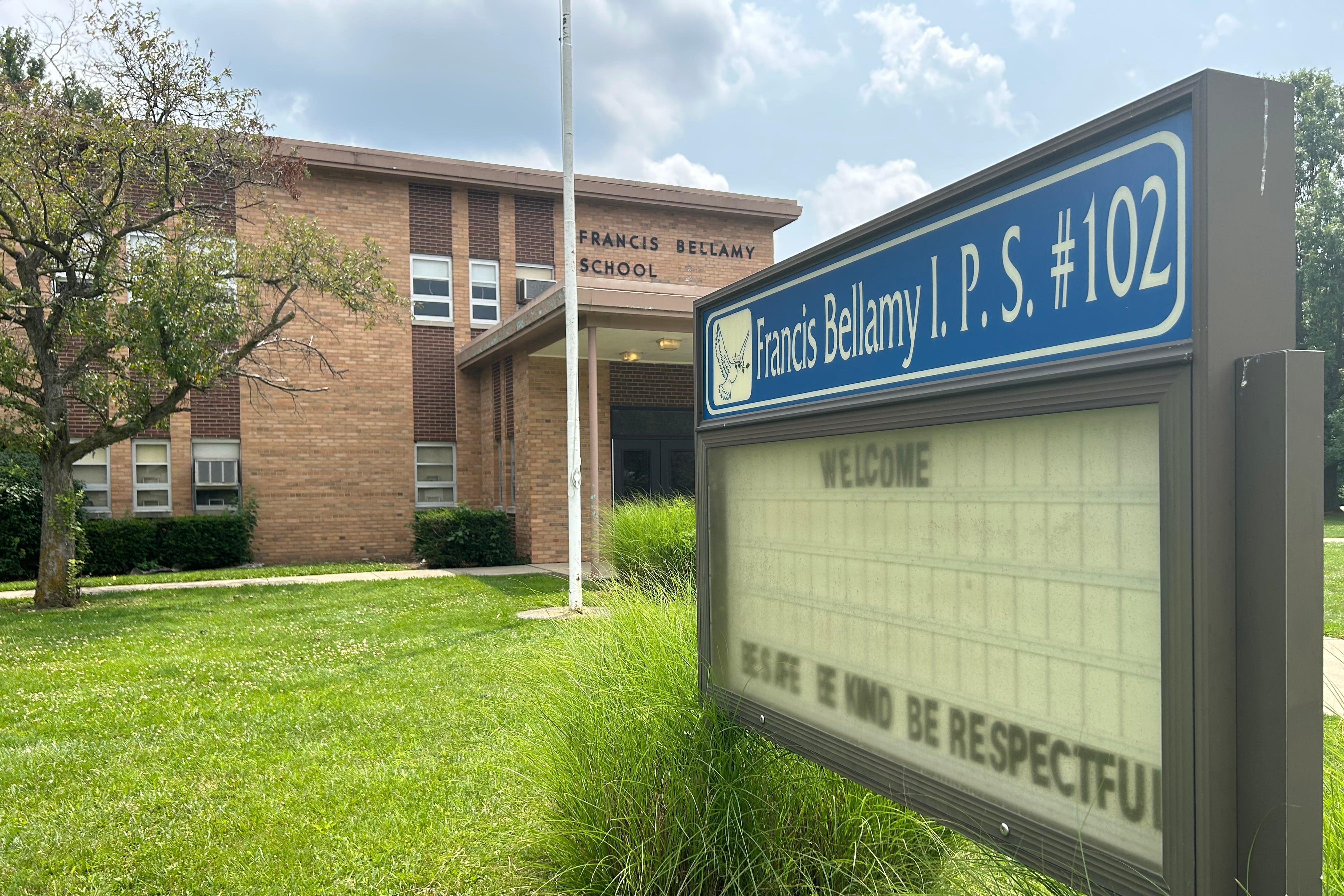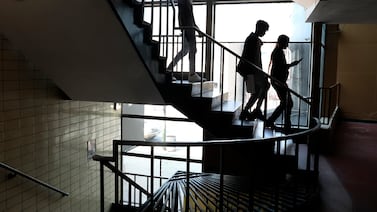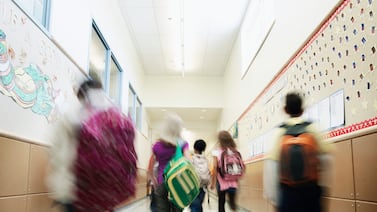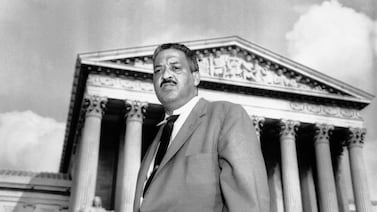Sign up for Chalkbeat Indiana’s free daily newsletter to keep up with Indianapolis Public Schools, Marion County’s township districts, and statewide education news.
Banned from selling any of its closed school buildings through a court order, Indianapolis Public Schools will instead lease Francis Bellamy School 102 to a local nonprofit that serves youth.
The Thursday 6-0 vote (one member was absent) by the IPS school board authorizes the administration to lease the building on the east side for free to the Voices nonprofit. But the lease acknowledges the terms may change depending on an agreement with Attorney General Todd Rokita’s office or the result of the district’s ongoing lawsuit with the state over closed school buildings.
Voices, which works with disadvantaged youth in the city, will pay the building’s utility costs.
District officials have stressed that Voices shares the district’s philosophy of serving underprivileged youth and students of color. The organization could also help combat youth gun violence, board president Venita Moore said on Thursday — a growing issue that has reached a high in the past five years.
“One might wonder why this board continues to be committed to partner with Voices in ensuring they have a place to call home,” Moore said after the vote. “Voices is an integral part of the community, serving our city’s most vulnerable children, a number of whom have already been engaged with our justice system.”
The attorney general’s office did not immediately respond to a request for comment.
The sale of School 102, which the school board previously approved, is in limbo pending litigation with the state. A Marion County judge ordered a pause on the sale of any closed school buildings while the matter is in appeals court, but clarified that the district could lease the buildings if both parties in the lawsuit agree.
The lawsuit IPS filed in August against Rokita and state board of education officials sought relief from a state law that requires closed school buildings to be offered to charter schools for the sale or lease price of $1.
The district argues it is exempt from the law, thanks to a new addition to state statute this year that grants an exemption if districts share funds from voter-approved property tax increases for operating or safety expenses with an “applicable charter school.” A Marion County judge sided with the district last month, and Rokita appealed the ruling.
Thursday’s vote came after parents and students under the “Better Together” campaign, which features the charter-supportive group EmpowerEd Families, once again packed the meeting to urge IPS to work with charters instead of competing with them.
“Both IPS and charter schools should work together to find more innovative solutions,” said Elazia Davison, a student at Believe Circle City High School charter school. “This will build trust with families and improve partnerships in our city.”
Amelia Pak-Harvey covers Indianapolis and Lawrence Township schools for Chalkbeat Indiana. Contact Amelia at apak-harvey@chalkbeat.org.








